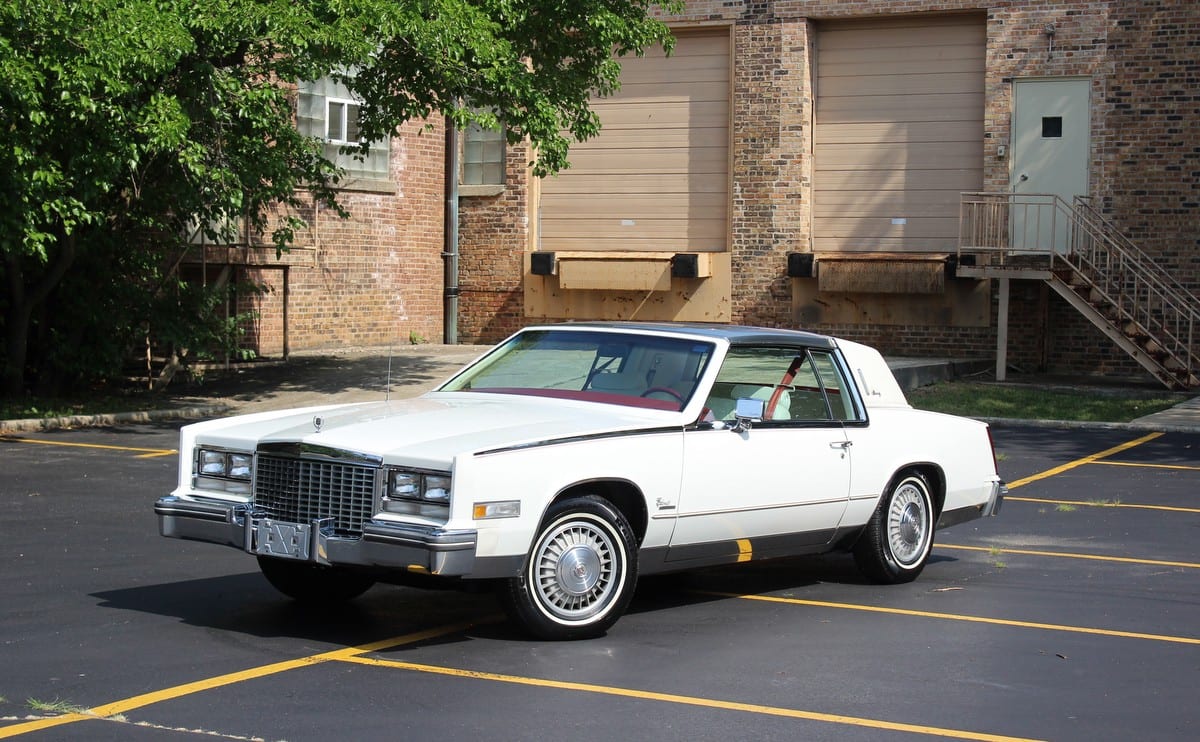The Vermont Supreme Court, in In re Estate of Crofut, 2024 VT 8, 23-AP-011 (Vt. Feb 23, 2024), gave a comprehensive primer on how to invalidate a will for undue influence under Vermont law.
Can an Option to Acquire Property in a Will for Below Market Value Constitute Undue Influence?
Yes, an option given to a person in a will to acquire the testator’s property below market value can be stricken for undue influence. In the case, the alleged undue influencer caused a provision to allow him to buy the deceased’s house for far below market value was invalidated.
The court determined that, had testator known about the theft, he never would have included the option provision in his will and that “[s]ubverting the sound judgement and genuine desire of the individual, is enough to constitute undue influence.” Thus, the civil division affirmed the probate division and struck the provision of the will granting beneficiary the option to purchase testator’s home at substantially below market value.
How to Prove Undue Influence in Vermont
The Vermont Supreme Court explained the relationship between improper behavior and the existence of a confidential relationship, first focusing on the meaning of a confidential relationship.
First, beneficiary and testator were in a confidential relationship, shifting the burden to beneficiary to prove lack of undue influence. Here, the relationship between beneficiary and testator is “suspect, such as those of guardian and ward, attorney and client,” etc., because it is a relationship “of trust and confidence in which the temptation and opportunity for abuse would be too great” were the beneficiary not required to prove their worthiness. Est. of Raedel, 152 Vt. at 483, 568 A.2d at 334. This gives rise to a presumption of undue influence which beneficiary must then rebut.
While our caselaw has previously determined that residence in the same home, friendship, and good neighborliness do not illustrate the existence of a confidential relationship, the facts here are distinguishable because beneficiary played the role of all the above. See In re Burt’s Est., 122 Vt. 260, 266, 169 A.2d 32, 36 (1961); Miller v. Roseberry, 120 Vt. 498, 503, 144 A.2d 836, 839 (1958).
Far from “mere friendship,” beneficiary served as testator’s friend and confidant, he lived with testator in testator’s home, and he helped provide care for testator during his immobility. Beneficiary not only understood that he would be left the house by testator, but also advocated for additional bequests such as testator’s car. See In re Moxley’s Will, 103 Vt. 100, 112152 A. 713, 717 (1930) (noting in cases of undue influence typically “it appears that the beneficiary has procured the will to be made or has advised to its provisions”).
Further, while this Court has never required the presence of a fiduciary relationship to initiate burden shifting in cases of suspected undue influence, such a relationship arguably existed here where testator provided authority to beneficiary to act as agent in utilizing his debit card to procure household goods, a duty beneficiary violated. See Est. of Kuhling by Kuhling v. Glaze, 2018 VT 75, ¶ 17, 208 Vt. 273, 196 A.3d 1125 (explaining the elements of an agency relationship). Because “the doctrine is applicable where a relationship of trust and confidence obtains between a testator and beneficiary,” and such characteristics are present here as articulated above, we determine the burden must shift to beneficiary to rebut the presumption of undue influence. See Moxley’s Will, 100 Vt. at 112, 152 A. at 717.
The Court then explained the conduct that constituted undue influence: stealing without confessing the theft to the decedent.
When faced with the considerable evidence showing beneficiary stole large amounts of money from testator while he lay dying, beneficiary had little to say in response aside from “if that’s what the record shows” and “I don’t remember.” The court similarly found beneficiary’s response that the large amount of cash in his bedroom was from years of tip wages and that testator permitted beneficiary to use the debit card for whatever he wanted to be incredible, especially in light of the photographs, bank statements, forensic auditing, and testimony of testator’s neighbors. Beneficiary pretended to be a helpful friend, all the while stealing from testator when he was at his most vulnerable, conduct testator would surely not have rewarded with a bequest. Beneficiary notes that “the law does not infer undue influence from the mere fact that one who is to profit by the instrument had the opportunity to impress his will upon the mind of the testator.” Burt’s Est., 122 Vt. at 266, 169 A.2d at 36. However, the distinguishing factor here is that the suspicious circumstances arose from more than the fact that beneficiary would profit from the will.
Beneficiary was in a position of power over testator due to his physical condition, with the opportunity to deceive testator and convert his property, which beneficiary acted upon. Indeed, if not for testator’s health challenges, beneficiary would likely have been unable to steal from testator due to testator’s diligent financial record-keeping. Because there were suspicious circumstances, beneficiary bore the burden of demonstrating a lack of undue influence. Beneficiary did not meet that burden. Beneficiary concealed his theft from testator because he likely knew that testator would disapprove, and his argument that this conduct falls outside of undue influence employs too narrow a reading of the law and would unjustly enrich beneficiary in the face of egregious conduct.
So theft without a confession can constitute undue influence. The dissent did not think that was the correct analysis.
There is no evidence that beneficiary’s conduct destroyed testator’s free agency and supplanted it with beneficiary’s own. The majority holds, without citation, that beneficiary’s conduct, including stealing money and enjoying a position of physical power over testator, when viewed in light of the “suspicious circumstances” of their “confidential” relationship, amounts to undue influence. But the majority, in my opinion, misapplies the legal question it correctly cites elsewhere: whether beneficiary’s conduct constitutes “[a]ny species of coercion, whether physical, mental, or moral, which subverts the sound judgment and genuine desire of the individual” at the time the individual executed the will in question.
Beneficiary’s conduct was certainly odious, but only conduct amounting to an influence sufficient to destroy testator’s free agency can “[]void a will.” Everett’s Will, 105 Vt. at 315, 166 A. at 836.
The majority answers the dissent by really getting top the bottom of human nature and how we influence one another with improper behavior:
The dissent disagrees with this analysis on the grounds that there is no direct link between beneficiary’s theft from testator and the bequest at issue, arguing that beneficiary here did not supplant testator’s true desires for the explicit purpose of taking under the will. We believe this to be too narrow an application of the law. While this may not be the conventional case of a beneficiary whispering into a testator’s ear, the record is sufficient to show that beneficiary influenced testator in lying by omission. The dissent points out that testator had a history of frugality and resistance to influence, but this only strengthens our conclusion. The record was sufficient to support the inference that beneficiary, knowing he would take under the will, and knowing that testator would disapprove of his theft, lied by omission.
Can Only Part of a Will be Voided for Undue Influence?
Yes, when other parts of the will are not connected to the undue influence. As the Court explained:
We conclude that partial voidance is an acceptable remedy when undue influence is found in that it best preserves the testator’s intent and effectuates the testator’s desires. Our overarching purpose in construing a will is to “is to ascertain the intention of the testator.” Est. of Holbrook, 2016 VT 13, ¶ 29. The provision at issue in this case is a small part of a much larger will that includes bequests to approximately twenty other individuals and entities, and amounts to between one and five million dollars. The evidence of undue influence is disconnected from these other bequests and individuals. If the entire will was invalidated, testator’s wishes would be wholly ineffectual. Therefore, invalidating an entire testamentary instrument based on the deficiency of one particular portion contravenes the desires of the testator. See Est. of Raedel, 152 Vt. at 481, 568 A.2d at 332 (noting “courts are bound to enforce the intent of the testator”). If we were to invalidate testator’s entire will here, the laws of intestacy would likely direct his estate to be descended to his daughter, whom he explicitly disinherited from his will. It cannot be said that doing so here would live up to testator’s intent.








